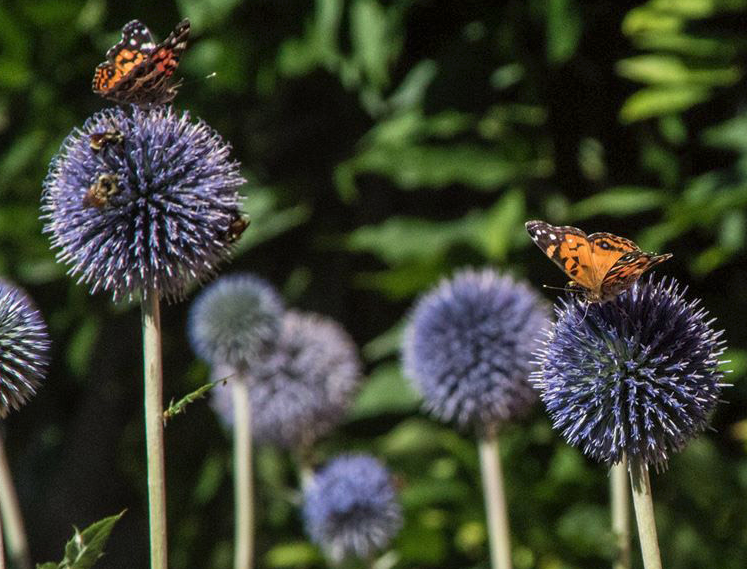Heresy in the garden
Published 8:00 am Thursday, November 9, 2017

- This allium is not native to Virginia, but it’s lovely, and I grow it mixed with a variety of other plants.
Full disclosure upfront: this column is about disagreeing with conventional wisdom and the politically correct. It’s full on heresy.
Not that many years ago, gardening was personal and done for pleasure and relaxation. If you wanted to specialize in growing rare alpine hellebores or exotic tropical plants and could afford to maintain them in the right conditions, then that was your right. No one thought it was odd or wrong. In fact, there is a long history of serious amateur gardeners collecting exotic plant specimens from all over the world and then growing these prized plants in their gardens or greenhouses.
During the early colonial period here, there was an active correspondence between gardeners here and their counterparts in England. Plants were collected here and shipped to anxious collectors there. You’d be surprised at some of the plants that were considered so exotic that they were grown avidly in English gardens. That’s how our native pokeweed came to be grown at Kew Gardens and the Lost Gardens of Heligan came to have a pineapple pit.
There are still a few serious horticulturists, including Tony Avent and Dan Hinkle, who go on plant collecting expeditions to Vietnam, China or South America. They’re anxious to find yet another new species, especially if it can be used to create an interesting new plant for the home garden. But times have changed. It’s too expensive for most people to maintain special environments for exotic plants. Even modern plant hunters now need corporate sponsors to underwrite their expeditions.
There are also environmental concerns. Pollinators are under attack in many areas and there is an urgent call for gardeners to only plant natives. Anything less is politically incorrect. Taken to the extreme, this means no German bearded irises, no parrot tulips, no big hybrid daffodils, no hellebores; all plants that I grow and adore. Many of my best gardening buddies live in England and when I bemoan to them about the pressure here to grow natives, I get a very different perspective, and, yes, they too understand the importance of native plants for pollinators, and, yes, they too are growing more of them than ever. In fact, the British call this movement nativism.
At the same time, however, ecologists in England are talking about novel ecosystems composed of species of many different origins; they believe that most natural ecosystems are actually quite accidental. There’s a growing sense in England that moderation and common sense should prevail. There is also an ethical and historical issue that we haven’t had to deal with here — the alleged promotion of native plants as part of Nazi landscaping practices. Please note that I said alleged.
Gardening has gotten complicated. I certainly don’t advocate allowing English ivy to run rampant in my woods, and I try as hard as anyone to eradicate garlic mustard and Japanese stilt grass, but I’m not giving up my crinum lilies or elephant ears, and certainly not my daffodils.
Peace, love and happiness to everyone. Enjoy your garden and worry less.
Cynthia Wood is a master gardener who writes two columns for The Herald. Her email address is cynthia.crewe23930@gmail.com


